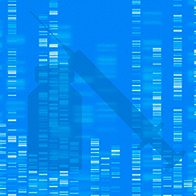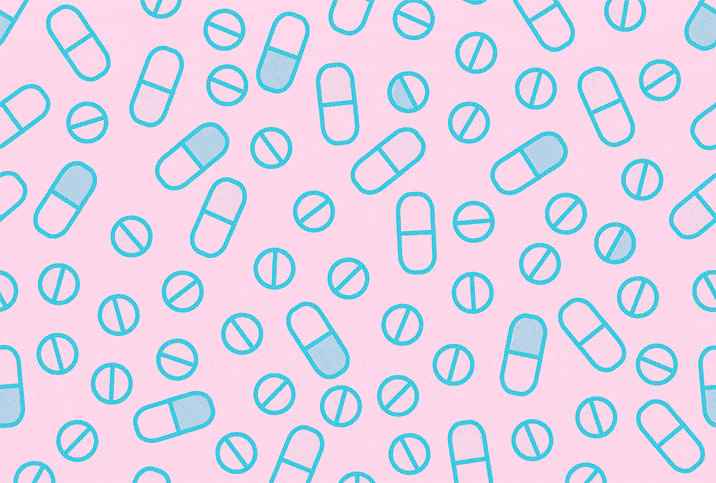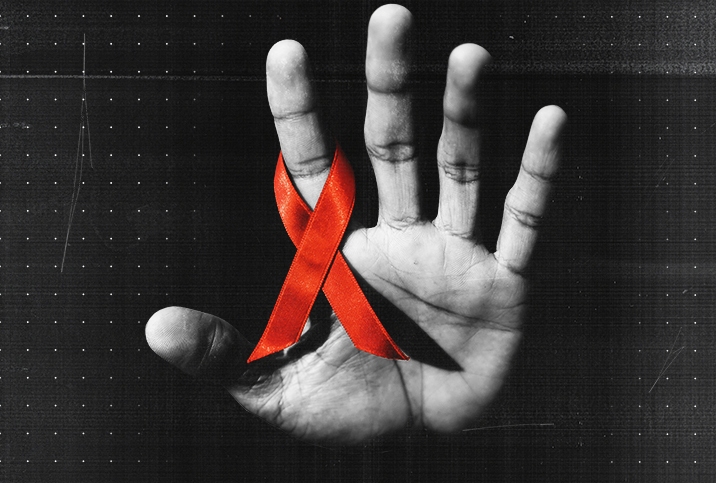We Have Questions: Diet and HIV

Human immunodeficiency virus (HIV) is a serious illness marked by a compromised immune system. While people living with HIV face various physical and mental health challenges, poor nutrition is among the most common issues.
To learn more about how diet can support or exacerbate HIV, as well as specific nutritional needs for people living with the disease, we spoke with Sheldon Zablow, M.D., a nutritional psychiatrist in San Diego.
In what ways does HIV affect nutritional needs?
Zablow noted that like all serious viral illnesses, HIV requires optimal nutrition to support a robust immune system and maintain a healthy weight, which are both key factors necessary to help your body fight any potential infections and improve the response to HIV treatment.
"Any severe infection—particularly HIV—causes poor nutrition because energy and nutrients are diverted from their usual function of maintaining healthy cells toward making white blood cells and other molecules needed to kill the viruses," Zablow explained. "This diversion requires a significantly increased intake of protein, grains, fat, minerals and vitamins."
He recommended that people living with HIV focus on getting ample vegetables and fruits in a healthy diet, as these foods are rich in antioxidants and phytonutrients, which help strengthen the immune system and improve cellular health.
"The immune system needs to be fully functioning in those with HIV because the antiviral treatments stop the virus from replicating, but it is the immune system that kills the virus," he added.
Furthermore, studies suggest improved nutritional status, dietary diversity and weight gain are associated with improved recovery, strength and quality of life for people living with HIV.
Why is HIV associated with malnutrition?
Unfortunately, malnutrition is one of the primary health consequences faced by people living with HIV.
Zablow explained this is a multifaceted issue.
"The severity of the illness reduces appetite and metabolism, causing weight loss, which leads to the malabsorption of vitamins and other nutrients in food while reducing the benefits of antiviral medications prescribed," he said. "The mouth sores of HIV and other gastrointestinal-associated illnesses make swallowing and digestion more difficult."
Another complication is that many people living with HIV have a poor appetite due to the side effects of the treatments they need. For example, certain drugs, chemotherapy or radiation commonly used to treat HIV can cause nausea, gastrointestinal (GI) disturbances or malabsorption.
"Another significant challenge for people living with HIV is that their compromised immune system allows foodborne pathogens to thrive, causing intestinal compromise," Zablow added.
One of the primary causes of malnutrition in people living with HIV is thought to be dysbiosis in the gut microbiome, the ecosystem of beneficial bacteria in the GI tract that help fend off infections, improve immunity, produce vitamins and digest food.
There is evidence to suggest prebiotics and probiotics can be beneficial for people living with HIV due to their protective role in the gut barrier and support for the gut microbiome.
"When nutrition is poor, muscle, bone, nerve and immune cells start to die, causing fatigue, depression, poor wound healing and opportunistic infections," Zablow explained.
Opportunistic infections are ones caused by bacteria and parasites the body can easily kill when in good health but that reproduce when health and nutrition are lacking.
"As poor nutrition and illness progress, there comes a point in time when the lack of nutrition becomes more of a challenge than the HIV infection itself," Zablow said.
He noted there are often additional dietary challenges for people living with HIV that complicate their ability to consistently get ideal nutrition.
"There are dietary challenges such as maintaining weight, being able to afford enough healthy food, avoiding raw food, and the requirement that all foods be properly washed and prepared to prevent unwanted foodborne illnesses," he said.
How can diet help support HIV treatment?
Zablow noted a positive nutritional status supports the immune system and gives the individual the energy and strength to fully respond to the medications and physical therapy in their treatment programs.
Additionally, eating a well-balanced, nutritious diet with adequate caloric intake keeps the immune system functioning properly, which lowers the risks of developing other infections and illnesses.
"Numerous studies have shown that in people with HIV, therapeutic nutrition intervention can increase the absorption of medication, thereby lowering medical costs, reducing comorbid illnesses and slowing the progression of the disease," he added.
How can diet negatively impact HIV?
To reiterate, a poor diet and/or insufficient caloric intake opens the door to opportunistic pathogens and could leave someone living with HIV in a vulnerable state. The body needs energy and nutrients to fight infections, repair damaged cells and tissues, assemble proteins, create enzymes for necessary biochemical reactions and so on. These functions are especially important for people living with HIV, because the ability to defend the body from other infections is vital for keeping the viral load in check.
Specific nutrient deficiencies, even in the absence of a caloric deficiency, can be problematic.
"If a diet is low in the B vitamins—B12 and folate—it prevents the immune system and brain from optimal function, worsening disease progression," Zablow explained. "B12 and folate are required to detoxify the cellular waste product homocysteine. A deficiency of either increases homocysteine, leading to inflammation, particularly of cells lining blood vessels."
'It is essential that B12 and folate in adequate amounts be added to any HIV treatment program to increase long-term health.'
HIV is associated with a decrease of these essential micronutrients because they are required to manufacture the hormonal and cellular responses to infections.
For example, one study carried out in 2016 reported that about 30 percent of patients with HIV had a deficiency in folic acid, and about 10 percent had a deficiency in vitamin B12. Plus, low levels of vitamin B12 have been associated with a more rapid acceleration of HIV.
"It is essential that B12 and folate in adequate amounts be added to any HIV treatment program to increase long-term health," Zablow advised. "Most multivitamins use the synthetic forms of B12 and folate in low doses, but patients with HIV require higher doses in the natural bioactive forms the body can use."
Additionally, studies indicate that vitamins A, C, D, E and B complex are particularly important for modulating the pathogenesis of HIV infection in infected adults.
Any diet tips for people living with HIV?
"It's essential for [people living with HIV] to have a balanced diet with enough calories from carbohydrates and fats for energy, protein for a resilient immune system, basic minerals for growth, adequate water for cell cleansing, and vitamins to optimize all biochemical activities," Zablow recommended.
If you're living with HIV, it's often a good idea to work with a registered dietitian who is experienced with nutrition for immunodeficiencies. Your dietitian can help you find a diet that meets your energy and nutritional needs so you can feel your best.




















